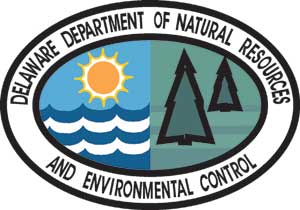The Department of Natural Resources and Environmental Control (DNREC), Division of Waste and Hazardous Substances, Solid and Hazardous Waste Management Section will conduct a public hearing on the proposed regulatory amendments to Delaware’s Regulations Governing Hazardous Waste.
Proposed amendments:
- Modify the characteristics of ignitability (hazardous waste code D001) to mirror the federal requirements.
- Correct typographical and reference errors.
To review the proposed amendments
The public may also view the proposed amendments Monday through Friday from 8:00 a.m. to 4:00 p.m. at this DNREC location: 89 Kings Highway, Dover, DE 19901. (302) 739-9403.
A Public Hearing will be conducted on:
Jan. 21, 2016 starting at 6:00 pm
DNREC Richardson and Robbins Building, Auditorium
89 Kings Highway
Dover, Delaware 19901
Written comments will be accepted until January 21, 2016 and should be sent to: lisa.vest@state.de.us or Lisa Vest, Hearing Officer, DNREC, 89 Kings Highway, Dover, DE 19901.
Contact me with any questions you may have about the generation, identification, management, and disposal of hazardous waste Daniels Training Services 815.821.1550 |
If you’re like me you read, “Modify the characteristics of ignitability (hazardous waste code D001) to mirror the federal requirements.” and thought, “Whoa! What’s that all about?” Well, you can relax. The answer is, not much. The proposed change to the regulatory definition of ignitability in the Delaware regulations will include specific language about the definition of a flammable compressed gas and an oxidizer instead of merely reading “…as defined in 49 CFR Part 173…”
Read my article on the Characteristic of Ignitability (D001) for Hazardous Waste
As a state with an authorized hazardous waste program, the Delaware DNREC can create and enforce its own regulations for the management of hazardous waste as long as they are at least as strict as those of the US EPA. This is an instance where DNREC wishes for its regulations to mirror those of the EPA. There are other instances where hazardous waste regulations in Delaware differ from those of the EPA. My Onsite RCRA Training addresses those state-specific regulations and how they apply to your facility.

 Delaware Department of Natural Resources and Environmental Control (DNREC)
Delaware Department of Natural Resources and Environmental Control (DNREC)